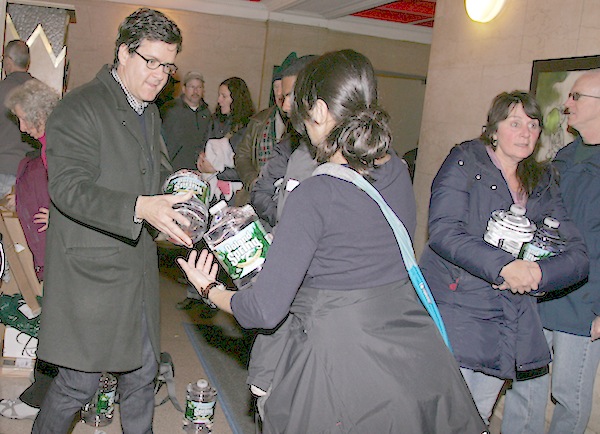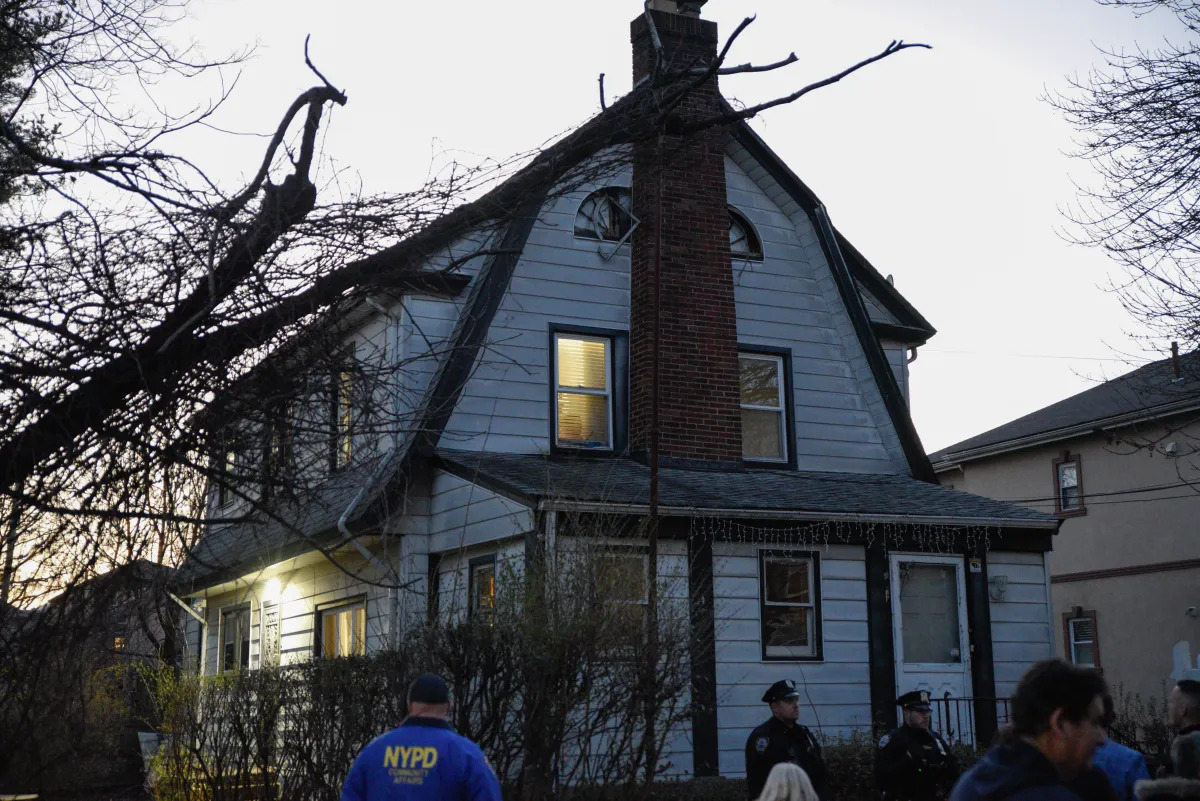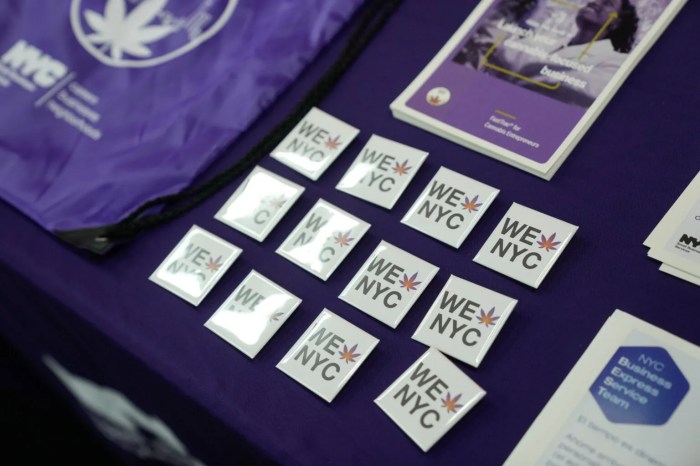
BY SAM SPOKONY | As people across the city continue to recover from the effects of Hurricane Sandy, residents of a historic West Village artists’ housing complex have been getting some much-needed help from local politicians and bands of volunteers.
Westbeth Artists’ Housing, a 384-apartment complex at 55 Bethune St., was hit especially hard by the storm, even as most of the West Village was spared from significant damage.
The complex, which opened in 1970, is well known as a provider of affordable housing for artists and their families. Famous former residents include photographer Diane Arbus, jazz composer Gil Evans and painter Robert De Niro, Sr., the father of actor Robert De Niro. Westbeth was declared a city landmark last year.
At press time, all of Westbeth still lacked heat, hot water and elevator service. Most apartments had regained electric power, but those in the westernmost “A” wing were still without power, along with parts of two adjacent wings.
Those obstacles have been compounded by the fact that many of Westbeth’s residents are elderly and can’t leave their building without using the elevator, thus becoming basically trapped in their apartments without adequate supplies.
So a coalition of elected officials – including City Council Speaker Christine Quinn, Assemblymembers Deborah Glick and Richard Gottfried, state Senator Tom Duane and state Senator-elect Brad Hoylman – have put together multiple, volunteer-staffed efforts over past two weeks to provide desperate residents with the food, water and other supplies they need to make it through each day.
Hoylman, a former Community Board 2 chairperson who on Tuesday won the 27th Senate District seat that Duane will vacate at the end of the year, was at Westbeth several times this past week to lead some of those gatherings. On Monday afternoon, he coordinated the work of dozens of volunteers as they hefted gallon bottles of water and bag lunches up the stairs.
“Even though other parts of the city were hit harder, and this might not be the front-page story, these people still need our help,” Hoylman said. “And what we’re seeing now is a real demonstration of how caring our community is, because the response has been terrific each day.”
He added that social media played a vital role in arranging the relief efforts, since virtually all of the volunteers on Monday had arrived because of Facebook and Twitter posts, as well as e-mails announcing the gathering.
Cold running water has since been restored throughout Westbeth, but before that, the bottled water brought by volunteers had been a lifeline to many elderly residents.
“It’s essential,” said photographer Shelley Seccombe, 74, who is one of the remaining Westbeth originals, having lived there since 1970. “I can still move around, and I only live on the third floor, but for so many people, especially those who live on the ninth or tenth floors, it can be impossible.”
Seccombe added that the prolonged lack of the complex’s other utilities is becoming increasingly frustrating, especially since many other people across Downtown Manhattan have already regained those services.
Even more frustrated was photographer Patricia Dillon, 50, who has lived in Westbeth’s “A” wing since 1990, and is still without electricity.
“It’s really bad,” Dillon said, “really, really bad.” She added that Con Ed workers had recently visited her portion of the building and said that all of the electrical equipment for those apartments will need to be replaced – a time-consuming process that many residents never expected to happen.
Con Ed did not return a request for comment on that issue. But the utility has repeatedly said that in cases where electrical equipment was too badly damaged by the flooding, an outside electrician would have to be called in to make repairs before power can be restored.
Dillon also bemoaned the lack of heat, explaining that it has been nearly impossible for her to sleep at night now that winter is fast approaching.
Hoylman, Glick and the other politicians also responded to that desperate need as the week went on, by arranging for donations of blankets to be distributed throughout the complex.
But Dillon said that, while the volunteer efforts have been important and impressive, she believes that Westbeth should have been getting direct help from the city and National Guard, as have many of the other Downtown complexes – mostly public housing buildings in the East Village and Lower East Side – that still lack heat, hot water and elevator service.
“Many of these incredible artists were pioneers who gave so much to this area, and really helped the city in the process,” she said. “Now it’s time for the city to help them in return, but the sad thing is that there hasn’t been that kind of response.”
Dillon also called out artist and filmmaker Julian Schnabel, who lives near Westbeth, on W. 11th St., arguing that he should have worked to aid his artistic counterparts, or at least stop by for a visit.
“Where the hell is Julian Schnabel?” she yelled. “What’s he even doing right now? These are people who need help, and the famous people like him should be the first ones coming here to support this community.”
In the meantime, the volunteer efforts have certainly made the difference for residents in the absence of famous figures or direct city or federal aid.
“I think they’re about at their wits end at this point,” said Laura Morrison, Duane’s chief of staff, who was also present at the water distribution on Monday. “So we’re just trying to make it more livable, and even though we can’t make it perfect, I think the coordination between elected officials, the Westbeth management and the tenant association has been really outstanding.”
Westbeth staff members were clearly instrumental as Hoylman directed the volunteers on Monday, since they had already compiled lists of the most needy residents in order to make the distribution efficient and effective.
As the recovery process continues, another major concern for many residents is that, since the storm completely flooded the complex’s basement, virtually all of the art that was stored down there has been ruined. Many longtime residents used portions of the basement as studio space, and were clearly not expecting the water to impact their work.
Westbeth is not actually within Zone A, the area declared by the city to be at the greatest risk for flooding. It is about a block away, within Zone B, which was only expected to be flooded in the case of a hurricane rated at Category 2 or higher, according to the Mayor’s Office. Hurricane Sandy was only rated at Category 1 before being downgraded to a superstorm shortly after it struck.
Seccombe explained that her husband, a sculptor, has been using a basement studio to store his work for more than 40 years, and they realize that it may be unsalvageable at this point. Westbeth management has not allowed anyone to retrieve anything from the basement yet, she said, because of understandable safety risks.
Michael Moss, another resident and a member of the Westbeth Residents Council, also recently posted online that music studios in the basement were especially devastated. He wrote that one studio is completely wiped out, including timpani drums, a grand piano, amplifiers, speakers, other percussion, and electronics, such as microphones, speakers, soundboards and recording devices.

















